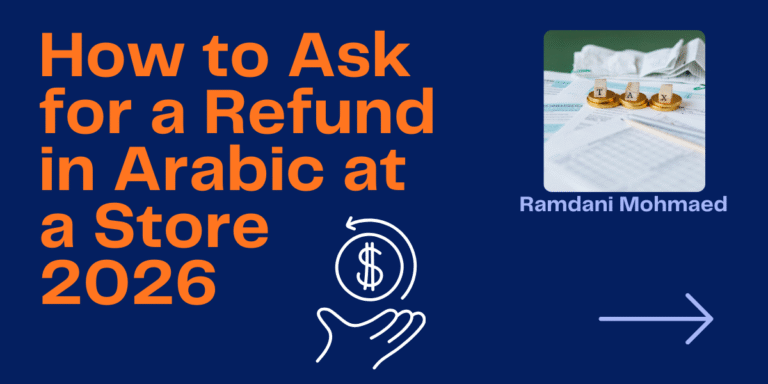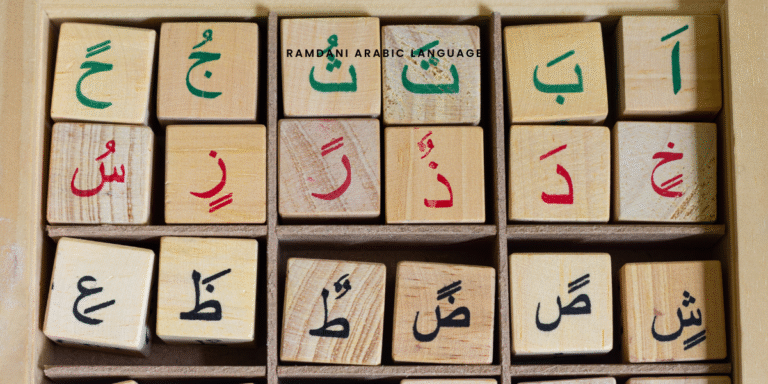6 Wise Arabic Proverbs to Improve Your Communication
Arabic is a rich and vibrant language, filled with history, culture, and unique ways of expressing ideas. Learning Arabic involves more than memorizing vocabulary or grammar rules. To truly understand the language and communicate naturally, learners need to become familiar with idioms and expressions. These phrases carry meanings that go beyond the literal translation, reflecting the values, humor, and everyday life of Arabic speakers.
Idioms and expressions are everywhere in conversation, literature, media, and even in casual interactions. They can make your speech sound more fluent and natural, but they can also confuse learners if taken literally. For example, an expression that seems simple in English may have a completely different meaning in Arabic. Understanding idioms gives learners insight into the culture and helps them connect with native speakers on a deeper level.
Many learners focus on grammar and vocabulary, but they often struggle with idiomatic language. Without exposure to these expressions, even advanced learners may sound formal, robotic, or disconnected from real-life conversation. Idioms often carry humor, wisdom, or moral lessons, making them a window into the mindset and daily life of Arabic speakers. They are not just linguistic tools—they are cultural keys.
This article will explore some of the most common and useful Arabic idioms and expressions that every learner should know. We will break them down into categories, explain their meanings, and show how to use them naturally in conversation. You will learn expressions used in everyday life, in professional settings, and even in informal conversations among friends.
Understanding idioms also improves comprehension when reading books, watching movies, or listening to news in Arabic. Many expressions cannot be translated word-for-word without losing their true meaning. By studying idioms, learners gain the ability to understand context, tone, and nuance, which are essential for fluency.
At Ramdani Arabic Academy, we believe that learning idioms and expressions is a crucial step for anyone serious about mastering Arabic. Our courses and articles are designed to provide practical knowledge that learners can apply immediately. We focus on real-life usage, cultural context, and engaging explanations that make learning both effective and enjoyable.
This guide is aimed at learners at all levels. Whether you are just starting or have been studying Arabic for years, understanding idioms will enhance your communication and give you confidence in speaking, writing, and comprehension. By the end of this article, you will have a collection of expressions that you can start using right away, helping you sound more natural and connected to Arabic speakers around the world.

Common Arabic Idioms Every Learner Should Know
Arabic idioms reflect the culture, history, and daily life of Arabic speakers. Learning them helps you communicate naturally and understand conversations more deeply. Here are some essential idioms and expressions every learner should know.
1. “على العين والراس” (Ala al-‘Ayn wal-Raas)
Literal translation: “On the eye and the head”
Meaning: “Of course” or “I am happy to do it”
Usage: This expression is used to show respect and willingness when someone asks for a favor. For example, if a colleague asks you to help with a task, you can reply, “على العين والراس,” showing that you are happy to help.
2. “إيد واحدة ما تصفق” (Eid Wahda Ma Tesaffaq)
Literal translation: “One hand does not clap”
Meaning: Cooperation is necessary to succeed
Usage: This idiom emphasizes teamwork. You might use it when encouraging colleagues, students, or friends to work together on a project.
3. “كل تأخيرة فيها خيرة” (Kol Ta’kheera Fiha Kheera)
Literal translation: “Every delay has goodness”
Meaning: Sometimes delays or setbacks have a positive outcome
Usage: This phrase is often used to comfort someone who is disappointed or frustrated by a delay. It reminds them that things can work out for the better.
4. “يد واحدة لا تصفق” (Yad Wahida La Tusaffiq)
Literal translation: “A single hand cannot clap”
Meaning: You cannot achieve success alone
Usage: Commonly said in workplaces or group projects to stress the importance of collaboration.
5. “الغايب حجته معاه” (Al-Ghaib Hujjatuh Ma’ah)
Literal translation: “The absent person has their excuse with them”
Meaning: Don’t judge someone who is not present; they may have valid reasons
Usage: Used when discussing someone who couldn’t attend an event or meeting. It teaches patience and understanding.
6. “الوقت كالسيف إن لم تقطعه قطعك” (Al-Waqt Kalsayf, In Lam Taqtahu Qata’k)
Literal translation: “Time is like a sword; if you don’t cut it, it will cut you”
Meaning: Time is valuable and must be used wisely
Usage: This idiom encourages productivity and careful planning. It is useful in both professional and personal contexts.
7. “اللي اختشوا ماتوا” (Al-Li Ikhtashu Matu)
Literal translation: “Those who were shy have died”
Meaning: Sometimes being too cautious or modest prevents progress
Usage: Often used humorously to encourage someone to take action or speak up.

Daily Conversation Idioms
Using idioms in daily conversation makes your Arabic sound natural and relatable. These expressions are common in casual settings among friends, family, and coworkers.
1. “على قلبه” (Ala Qalboh)
Literal translation: “On his heart”
Meaning: Someone is kind, generous, or easygoing
Usage: You can use this when describing a friend or colleague who is always willing to help. For example: “محمد رجل على قلبه” – “Mohamed is a kind-hearted man.”
2. “يمشي على مهله” (Yemshi ‘Ala Mahlah)
Literal translation: “Walks at his pace”
Meaning: Someone takes their time or is cautious
Usage: This is often said about people who are careful or deliberate. For instance: “لا تقلق، هو يمشي على مهله” – “Don’t worry, he takes his time.”
3. “أعطاه العيدية” (A’atah Al-Eidiyah)
Literal translation: “He gave him the Eid gift”
Meaning: To punish someone or reprimand them
Usage: Used humorously among friends or family to describe teasing or playful scolding.
4. “فص ملح” (Fass Malh)
Literal translation: “Salt shaker”
Meaning: Someone who adds humor or liveliness to a situation
Usage: You might say: “هو فص ملح في الحفلة” – “He is the life of the party.”
5. “كأن شيئًا لم يكن” (Ka’anna Shay’an Lam Yakun)
Literal translation: “As if nothing happened”
Meaning: Ignoring a situation or pretending it didn’t happen
Usage: This phrase is useful in everyday conversations to describe someone acting normally after a problem.
6. “يا جبل ما يهزك ريح” (Ya Jabal Ma Yehzzak Reeh)
Literal translation: “O mountain, the wind cannot shake you”
Meaning: Someone is strong, patient, and resilient
Usage: Often used to encourage friends or family during difficult times.
7. “يا بخت من رأى البحر” (Ya Bakht Man Ra’a Al-Bahr)
Literal translation: “Lucky is the one who saw the sea”
Meaning: Expressing admiration for someone’s fortunate experience
Usage: Can be used humorously or sincerely to comment on a trip, achievement, or opportunity.
These idioms are commonly heard in informal Arabic conversations. Learning and using them appropriately helps learners connect with native speakers naturally and understand cultural nuances in humor, praise, or advice.

Proverbs and Wisdom Expressions
Arabic proverbs carry lessons, advice, and cultural values. They are often used in storytelling, formal speech, and everyday advice. Learning these expressions helps learners understand the mindset and traditions of Arabic speakers.
1. “من جدّ وجد” (Man Jadda Wajada)
Literal translation: “He who strives will find”
Meaning: Hard work leads to success
Usage: This proverb is used to encourage effort and persistence. For example, a teacher might say to a student: “لا تقلق، من جدّ وجد” – “Don’t worry, those who work hard succeed.”
2. “الصبر مفتاح الفرج” (Al-Sabr Miftah Al-Faraj)
Literal translation: “Patience is the key to relief”
Meaning: Patience helps overcome difficulties
Usage: Often said to comfort someone going through challenges. It encourages calmness and perseverance.
3. “درهم وقاية خير من قنطار علاج” (Dirham Wiqayah Khayr Min Qintar ‘Ilaaj)
Literal translation: “An ounce of prevention is better than a pound of cure”
Meaning: Preventive measures are better than fixing problems later
Usage: Used in health, safety, or planning contexts. For example: “اغسل يديك دائمًا، درهم وقاية خير من قنطار علاج” – “Always wash your hands; prevention is better than cure.”
4. “القناعة كنز لا يفنى” (Al-Qana’ah Kanz La Yafna)
Literal translation: “Contentment is an endless treasure”
Meaning: Being satisfied with what you have brings happiness
Usage: Encourages gratitude and simple living. Often used in personal advice or life lessons.
5. “الكتاب يقرأ من عنوانه” (Al-Kitaab Yuqra’ Min ‘Unwanih)
Literal translation: “The book is read from its title”
Meaning: First impressions matter
Usage: Commonly used in professional or social contexts to remind people to present themselves well.
6. “ربّ أخٍ لم تلده أمك” (Rabb Akh Lam Talidhu Ummuk)
Literal translation: “A brother from another mother”
Meaning: A friend who is as close as family
Usage: Used to describe deep friendships and trust between people who are not related.
7. “الحكمة ضالة المؤمن” (Al-Hikmah Dhalat Al-Mu’min)
Literal translation: “Wisdom is the lost property of the believer”
Meaning: Seek knowledge and wisdom wherever you can find it
Usage: Often cited in learning contexts, emphasizing the value of gaining knowledge from different sources.
These proverbs offer insight into Arabic values such as patience, wisdom, contentment, and hard work. Learning them helps Arabic learners not only speak naturally but also think like native speakers. They provide cultural depth to conversations and enrich understanding of literature, media, and daily interactions.

How to Learn and Use Arabic Idioms Effectively
Learning Arabic idioms is different from memorizing vocabulary. These expressions carry cultural meaning, so understanding context and usage is essential. Here are practical tips to help you learn and apply idioms naturally.
1. Group Idioms by Theme
Organize idioms into categories such as daily conversation, work, friendship, or wisdom. This helps you remember them based on situations where they are likely to be used. For example, keep all idioms about patience and perseverance together to recall them during challenging moments.
2. Use Them in Sentences
Memorizing a phrase is easier when you create your own sentences. For example, instead of just remembering “الصبر مفتاح الفرج” (Patience is the key to relief), practice saying: “أنا سأنتظر النتيجة بصبر، الصبر مفتاح الفرج” – “I will wait for the result patiently; patience is the key to relief.” This reinforces understanding and usage.
3. Practice with Native Speakers
Conversations with native speakers give you context, pronunciation, and real-life usage. Ask your friends or teachers to use idioms in dialogue. This helps you understand tone, formality, and humor in different situations.
4. Read and Listen to Arabic Content
Books, articles, TV shows, and podcasts are full of idioms. Pay attention to how they are used in context. Note expressions you like, write them down, and review them regularly. Exposure to authentic language strengthens retention and comprehension.
5. Use Visual or Audio Aids
Flashcards, voice notes, or videos can help you memorize idioms faster. Associating an idiom with an image, scenario, or sound improves memory. For example, link “على العين والراس” (Of course/I am happy to do it) with a mental picture of someone happily agreeing to help.
6. Repeat and Review Regularly
Language learning requires repetition. Review idioms weekly, practice writing sentences, and speak them aloud. The more you use them, the more natural they will feel in conversation.
7. Understand Cultural Context
Idioms often carry cultural nuance. Avoid literal translations when speaking; instead, learn the meaning and appropriate situations for each idiom. Understanding the culture behind the phrase will make your usage more authentic and respectful.
8. Keep a Personal Idiom Journal
Write down new expressions, their meanings, examples, and situations where they can be used. Over time, this journal becomes a personalized resource that reinforces learning and helps track your progress.
By applying these strategies, learners can integrate idioms into everyday speech, improving fluency and making conversations more engaging. Using idioms naturally shows cultural understanding and helps you connect with Arabic speakers on a deeper level.

FINAL WORDS
Learning Arabic idioms and expressions is more than memorizing phrases. It is a journey into the culture, values, and daily life of Arabic speakers. Using idioms correctly makes your speech more natural, helps you connect with people, and gives you confidence in conversation.
Start small. Focus on a few expressions at a time, practice them in sentences, and observe how native speakers use them. Over time, these idioms will become a natural part of your speech. Remember that context and tone are just as important as the words themselves. Using an idiom at the wrong moment can confuse listeners, so pay attention to situations and formality.
Consistency is key. Review expressions regularly, practice with friends or teachers, and incorporate them into writing and speaking exercises. The more you engage with idioms in real life, the more fluent and confident you will become.
At Ramdani Arabic Academy, we emphasize learning Arabic in a practical, culturally aware way. Our lessons, articles, and courses focus not only on language skills but also on cultural understanding. Idioms and expressions are an essential part of this approach, helping learners speak naturally and appreciate the richness of Arabic.
As the founder of Ramdani Arabic Academy, I have seen many students grow in confidence once they start using idioms effectively. They report feeling closer to native speakers and more comfortable in conversations, whether in personal, academic, or professional settings. Learning idioms is a small step that creates a big difference.
By following these tips, practicing regularly, and staying curious about the culture, you can master Arabic idioms and expressions. They will enrich your language, make your communication more authentic, and help you build meaningful connections with Arabic speakers around the world.







